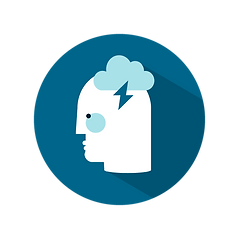7 habits, which they increase
intelligence
April 13, 2018

For several centuries, people believed that their talents could only be given by God. They thought they were born with a certain level of IQ that nothing could work with to do.
Numerous studies show that we can tune our intelligence and increase our abilities. Learning new skills helps our brain to create neural pathways that have a positive effect on its functioning, and thus the intellect. Below seven interests that increase IQ.
Most read:
How does mom's self-esteem affect her daughter?
How to get out of your comfort zone and make your dreams come true?
Addiction to computer games and the Internet.







1. PLAY ON MUSICAL INSTRUMENTS
Research ( 1 ) suggest that playing an instrument on a regular basis changes the shape and power of the brain and can be used in therapy to improve cognitive abilities.
It is the most important of all activities because it has the greatest effect on the brain. Increases imagination, observation power, communication, math skills, benefits our memory, brain function, and executive skills.
2. READ EVERYTHING
It is no coincidence that these very satisfied and happy people read a lot of books. Research shows that it may not be just fun ( 2 , 3 ).
Reading is therapeutic in many ways. Whether it's the series " A Song of Ice and Fire", "Lord of the Rings" or the latest Business Weekly, the effect is the same - it calms down nerves and relaxes head.
It helps in connecting information, solving dilemmas, dealing with problems better, recognizing patterns, understanding people. In the business world, this is a great skill in managing people.
Reading increases our linguistic competence and broadens vocabulary, expands knowledge and increases brain activity. "If" smarter "means having an extensive vocabulary and more knowledge about the world ... this reading can make people smarter " he wrote psychologist Keith Stanovich ( 4 )
3. EXERCISE REGULARLY
A review of studies assessing the effect of vigorous physical activity on cognitive performance in adults ( 5 ) showed that aerobic exercise for 60 minutes facilitates information processing. Conversely, prolonged exercise, which leads to dehydration, jeopardizes both information processing what memory.
You can't do 20 push-ups every three months and expect results. Regularity is very important here. You don't have to treat yourself to an extreme training session every day. Even if it takes 15 minutes a day, do it. Exercises they improve memory, concentration and understanding.
Remember that staying in a sitting position for too long does more harm than good.
4. LEARN A NEW LANGUAGE
Research ( 6 ) show that those who speak more than one language easier they solve riddles. Learning a new language has a positive effect on the brain and increases memory. P will dress up n even your organizational skills. The additional language will also look great on your CV.
5. VERIFY YOUR TOTAL TEACHING
Most of us know the concept of memorizing an infinite number of pages before an exam - the 3Z rule (Forget - Pass - Forget). We often quickly forget what we remember for the exam because it is really that knowledge it is not us needed.
The situation is different when you acquire a new language ( 7 ). Then your intelligence shoots out because of learning holistic. During this process, you learn large amounts words, punctuation marks, syntax ... and that's it you must remember Material to repeat. If you use this technique in your daily life, it will help you a lot. Buy a small notebook (one for your pocket or purse) in which to write down important things, and view these passages at your leisure.
6. TRAIN YOUR BRAIN
Everything that affects your brain: games (eg chess), crosswords, riddles, puzzles ... increases neuroplasticity ( 8 ). Neuroplasticity is the term used to describe changes in the brain that occur in response to an experience. There are many different mechanisms of neuroplasticity, from the growth of new connections to the creation of new neurons. Put simply it it allows the brain to organize itself better. Our mental horizon widens and our cognitive abilities improve.
Neuroplasticity maybe also help in the fight against stress and depression.
7. MEDITATE
Scientist Richard Davidson conducted an experiment on Tibetan monks ( 9 ). He wanted to see if some mental waves could be produced on demand.
When, during meditation, a scientist he asked to focus on compassion he found all the monks with deep compassion.
The results of the research done on this In an extraordinary attempt, they suggest that in the course of long-term meditation for thousands of hours, practitioners actually changed the structure and function of their brains.
The greatest influence and benefit of meditation is the manipulation of emotions. You can help your brain reprogram itself and induce any feeling you need. It makes a person stronger. Research on the brain and meditation shows that "We can all take responsibility for our brains" for emotions and thoughts.









